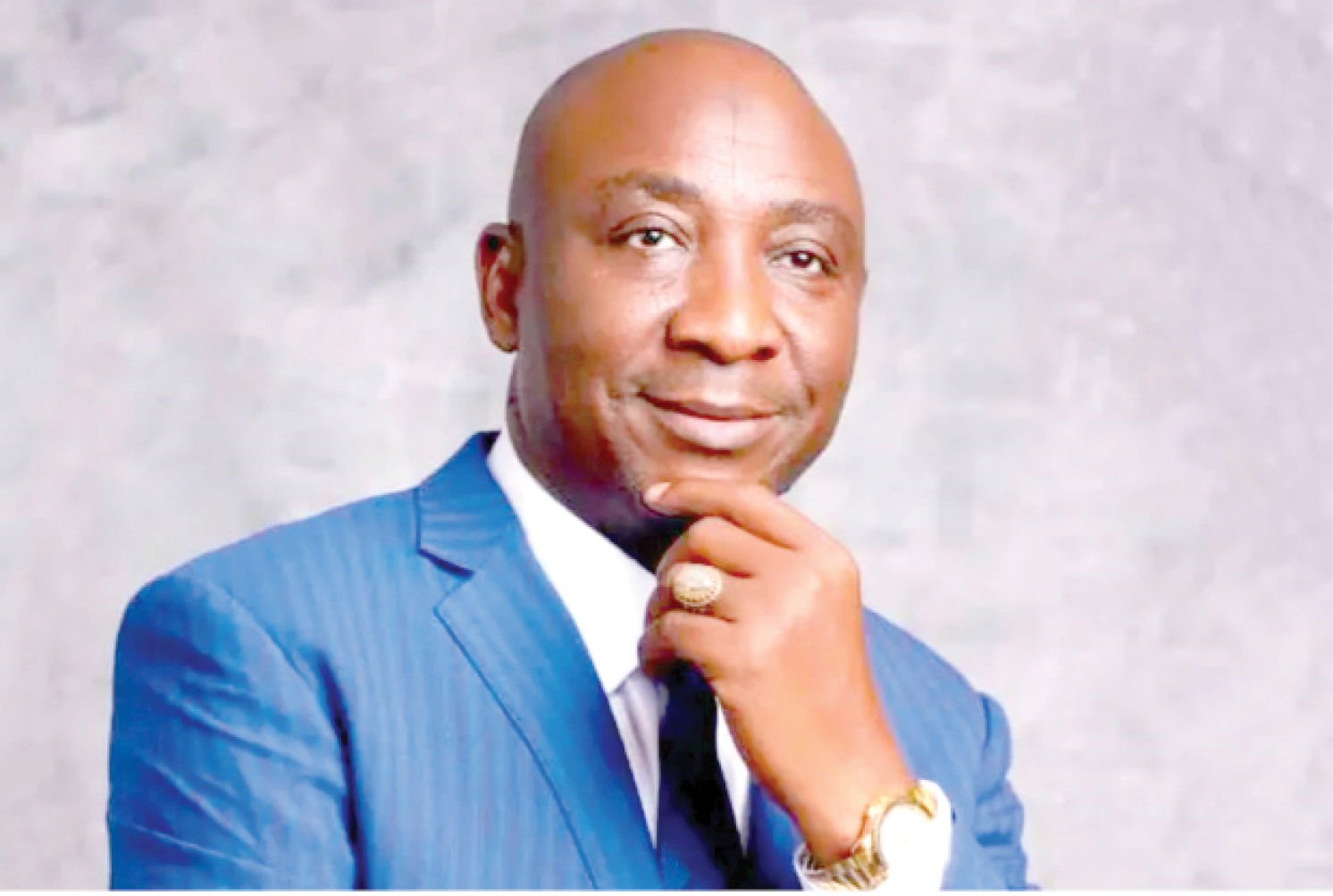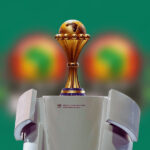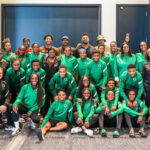September 30, 2022, was a new dawn and a breath of fresh air for Nigerian football as the 8-year rule of Amaju Melvin Pinnick officially ended with the election of Alhaji Ibrahim Musa Gusau as the new president of the Nigeria Football Federation (NFF).
Barring unforeseen circumstances, the former Chairman of Chairman in the past NFF board will preside over Nigerian football for the next four years.
- Police arrest escapee of Kuje Correctional Centre in Kano
- Column No.6: An ‘escape’ from Togo in retrospect (II)
Therefore, the Zamfara State-born football administrator is tasked with the arduous responsibility of rebuilding Nigerian football which has suffered poor fortunes in the past eight years of Pinnick’s reign.
It will, however, not be a walk in the park for Gusau as he must first defuse the ‘landmines’ and remove the slippery peels that have been consciously or unconsciously planted by his predecessor in office.
Trust Sports, therefore, takes a look at some of the problems that Gusau has inherited and must address urgently to reunite aggrieved stakeholders and reposition Nigerian football.
PFAN court case
The build up to the 2022 NFF elective congress was characterised by court actions with the Professional Footballers Association of Nigeria (PFAN) Task Force securing a Federal High Court order in Abuja to stop the NFF election.
The NFF went to an Appeal Court, also in Abuja to obtain a stay-of-execution order for the election to be held in Benin City as scheduled.
However, the outcome of the election notwithstanding, the PFAN Task Force has threatened to proceed to the Supreme Court to press home its demands.
The group had demanded for the statutory amendment of the current NFF status 2010, the composition of the executive committee of the NFF, the voting pattern and other relevant provisions of the 2010 NFF statutes in consonance with FIFA, CAF, NFF and the constitution of the Federal Republic of Nigeria 1999 as amended.
It will be noted that five statutory bodies make up the NFF – the players union, coaches union, referees, the clubs and the state FAs – but the players union, which has been factionalised following a leadership rift, would be represented by the rival group called All Nigerian Players Union and this has not gone down well with the PFAN, led by ex-international Tijani Babangida.
In order not to face another lengthy battle in court, it was gathered that the new NFF board has agreed to hold peace talks with the group.
Strained relationship with sports ministry
It is now an open secret that in recent years, the relationship between the sports ministry and NFF has been anything but cordial.
The problem has always been that the NFF lacks the funding to register the national teams for the many international football competitions. Because the teams are national teams and the Federal Government’s property, they have always been financially dependent on the government.
The NFF has the responsibilities to take care of the national teams for the government who then in turn determines which competitions to participate in and approves them for registration by the federation and this is why there is a basis for a good relationship to exist between the federation and the ministry.
However, under Pinnick, the NFF has not had it smooth with ministry under Solomon Dalung and Sunday Dare.
In the past when FIFA or CAF didn’t fund federations, the Federal Government funded all of Nigeria’s participation in all international events, covering preparation, travels, allowances, accommodation, competition, equipment, clothing, everything.
The federations were involved only as facilitators for the registration of the teams for the international competitions and there were no crises. But the moment Nigeria qualified and went to her first World Cup in 1994 and got some funding from FIFA, the landscape of Nigeria football changed as the experience really opened the football administrators’ eyes that football offered a lot of financial potential.
At this point, the Gusau led board must cultivate a cordial relationship with the supervising ministry and give respect to the laws of the land that established the football governing body while retaining its supposed autonomy and affiliation with FIFA which does not entertain or tolerate decisions by local courts.
Factionalised football Supporter club
Like the players’ unions, the Nigerian football Supporters Club has been enmeshed in crisis with two presidents claiming leadership of each of the factions. While Abayomi Ogunjimi prides himself as the President of the Authentic Nigeria Football Supporters Club, Prince Vincent Okumagba claims to be the President of Nigeria Eagles Supporters Club.
There are other groups such as Nigeria Football supporters club, the Eagles supporters club and the Super Eagles supporters club who are also fighting to be recognised as the main supporters group.
In the past, Pinnick had sought to reconcile these groups and at a point invited the President- General of the Supporters Club, Dr. Rauf Ladipo and others for truce meeting.
Considering the motivational role of the supporters, this is one crisis that Gusau must tackle without further delay.
Bonuses and allowances brouhaha
The welfare of national team players has been poor and inconsistent over the years with national players going on protests for not being paid their bonuses and allowances. Sometimes, they are forced to hold the nation to ransom by refusing to return to Nigeria after international competitions.
These incidents had harmed the image of the country in the international community so Gusau who has pledged to pay priority attention to the players must match his words with action.
Dispirited corporate organisations
Considering the lack of transparency of the immediate past board in its sponsorship deals with reputable companies like MTN, Premier Lotto, Coca-Cola, Aiteo, Air Peace, ZenithBank, Peak Milk, Bitnob and lately the renewed kit deal with Nike which ran into billions of naira, most corporate organizations have developed cold feet in sponsoring Nigerian football. This means the new NFF president has an uphill task before him, if he is to woo back such unwilling corporate organizations.
Accumulated debts/ coaches salaries
Despite earning billions of naira from sponsors, the Federal Government and grants from CAF and FIFA, the board led by Amaju Pinnick has left behind accumulated debts running into billions of naira for the incoming board. Most hotels in Abuja where national team players are accommodated are still grumbling over monies owed them by the NFF. And the coaches, both indigenous and foreign are not smiling for they are owed several months of salaries.
Motionless domestic football leagues
Recently, Sunday Dare, the Minister of Youths and Sports Development described domestic leagues as the livewire of Nigeria’s football development and expressed optimism that requisite reforms will soon kick off to ensure that Nigerian football and its administration attain the enviable standard where rules are adhered to, and governance structures follow international best practices.
The Nigeria Professional Football League (NPFL) has suffered, like many others, from the financial impact and dwindling fortunes since the late 2000s and is currently ranked 12th in Africa.
The football leagues have continued to witness late kickoff dates and sometimes are never completed leading to the use of technicalities to determine league winners.
Although the 2021/2022 season ended two months ago, up to this moment, there is no confirmed date for the kick-off of the 2022/2023 season, even as other leagues across the world have since restarted.

 Join Daily Trust WhatsApp Community For Quick Access To News and Happenings Around You.
Join Daily Trust WhatsApp Community For Quick Access To News and Happenings Around You.


